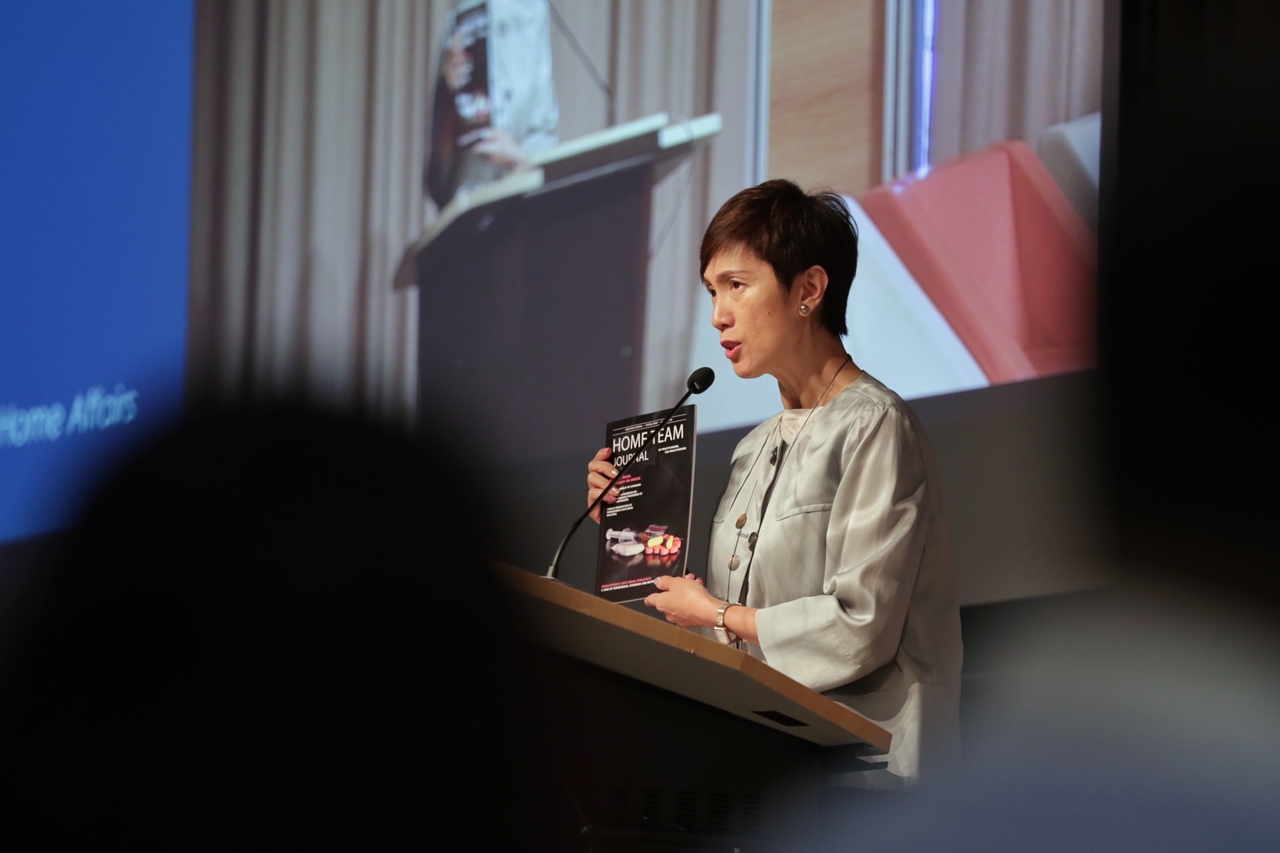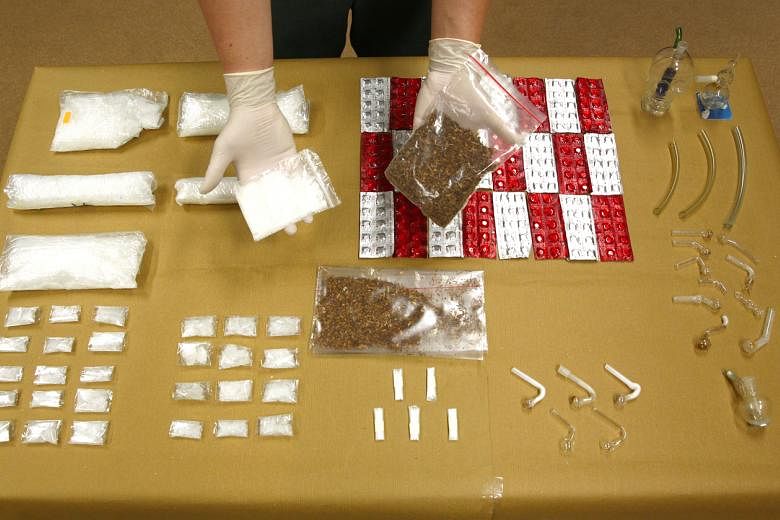SINGAPORE - The cost of drug crime in Singapore was more than $1.2 billion in 2015 despite the Republic experiencing a lower drug abuse rate as compared with other countries, a Nanyang Technological University (NTU) study has found.
In deriving the total bill, researchers took into account the amount spent by different agencies in combating and preventing drug crimes, and the losses incurred by the drug abuser in consuming drugs, among other factors.
Manpower Minister and Second Minister for Home Affairs Josephine Teo said on Monday (Jan 20) that economists have attempted to quantify the cost of drug crime in monetary terms.
"Even for Singapore, where our drug abuse rates are much lower than other countries, it is sobering that the total cost of drug crime was as high as $1.23 billion in 2015," said Mrs Teo at the opening of the Harm Prevention Seminar, which was held at the Lifelong Learning Institute.
The seminar, which is organised by the Ministry of Home Affairs, brings together government agencies, community partners and academia to share research findings related to harm prevention.
The study, which was commissioned by the Central Narcotics Bureau (CNB) in 2016, showed that the public sector accounted for the largest expenditure in 2015 at 38 per cent of the total bill.
Researchers took into account the operating costs of agencies like the CNB, Singapore Prison Service - which runs Drug Rehabilitation Centres - and the Singapore Corporation of Rehabilitative Enterprises, which provides rehabilitation services for inmates and former convicts.
The second highest cost to society is the loss in productivity, at 37.7 per cent.
To derive this, the study considered the potential wages drug abusers could have earned if they were not incarcerated.
The operating costs of other organisations, like the Singapore Anti-Narcotics Association, were also taken into account in tabulating the total bill.
The charity runs counselling sessions and partners various organisations to provide financial and employment assistance.

In her speech, Mrs Teo also spoke on the dangers of having a lax attitude towards drug use.
She said while most in Singapore agree that tough laws must be maintained to keep drugs out, public support cannot be taken for granted.
"There is a lot of misinformation about drug use," she said, adding that there are "incredulous claims" that cannabis is harmless.
"If we do not counter such misinformation, this may lead wrongly to the liberalisation of attitudes.
"Public support for our zero tolerance on drugs may then be eroded," she said, noting that there cannot be a let-up in public education on the harms of drugs.
Mrs Teo highlighted research findings which showed that drug consumption and trafficking fuel other crimes; legalising cannabis leads to increase in crime and traffic accidents; and that cannabis use can harm the individual.
"The Government and the community must maintain a firm, unified stance against drugs to prevent harm to our people," she said.
Singapore's harm prevention approach, she explained, has worked well, with the local drug situation under control despite a "significant deterioration" in the international environment.
The pool of drug abusers arrested today has been halved to around 3,000, down from more than 6,000 each year in the 1990s.
Rehabilitation efforts have also led to significant improvements, with the recidivism rate for drug abusers dropping to 24.4 per cent for the cohort released in 2016, said Mrs Teo.
This is down from a recidivism rate of 67.4 per cent for the cohort released in 1996.
But tough laws and robust enforcement remain necessary.
Mrs Teo highlighted a study by Home Team psychologists which found that offenders who did not traffic drugs were deterred from doing so by the fear of being caught.
Those who trafficked drugs were also influenced by the punishment for drug trafficking and consciously limit the amount trafficked to minimise punishment, she said.
The NTU study, conducted by Professor Euston Quah, Associate Professor Chia Wai Mun and research associate Tan Tsiat Siong, is published in a special issue of the Home Team Journal, which was launched on Monday.
Prof Quah said public spending in combating drug crime is substantially lower when compared with the financial impact of drug crimes in other areas combined, including the loss of lives due to drugs, and the loss in productivity.
He said: "There is room for them (the Government) to spend more, in the hope that if they spend more, we can reduce the rest of the costs of drugs to society."


